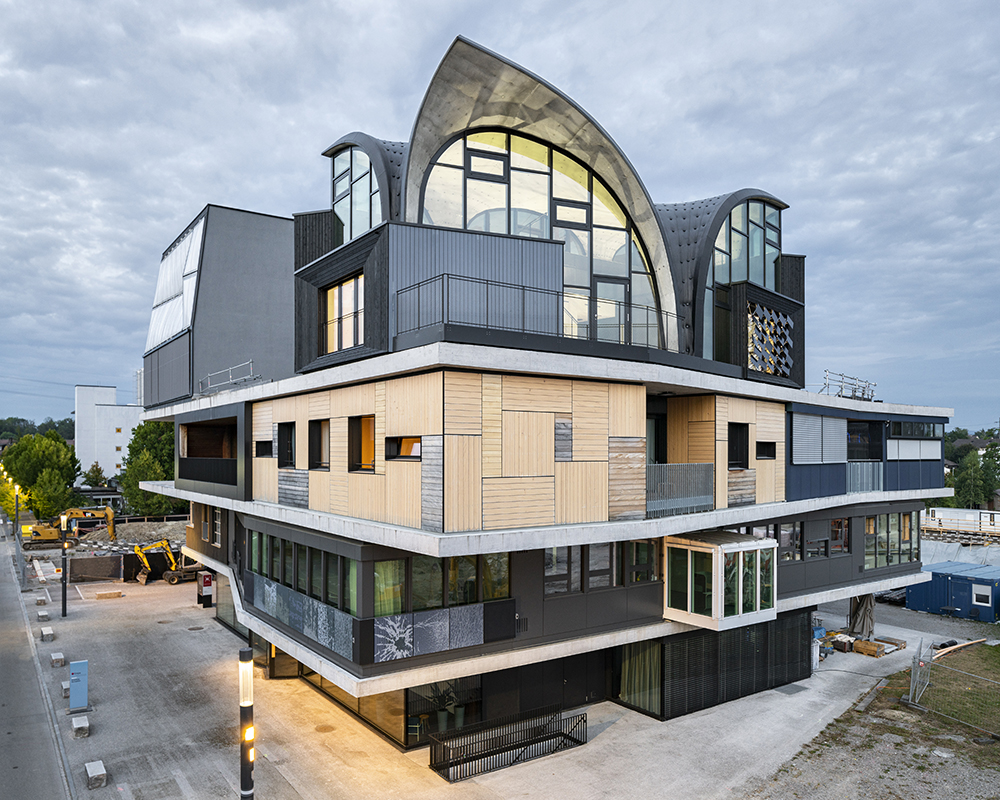
The floor solution was designed by the Block Research Group (BRG) of the Swiss Federal Institute of Technology (ETH Zurich) using the principles of strength through geometry. The sustainability profile of the floor solution is driven by its smart design. It uses 50% fewer materials. Its green concrete with Holcim's ECOPact Plus offers a 33% lower carbon footprint and its circularity profile using Holcim's green cement with 20% recycled construction and demolition waste inside.
With traditional floor slabs in reinforced concrete accounting for 40% of the concrete mass of medium-rise buildings, the combination of smart design with green and circular building materials makes sustainable construction possible at scale. This breakthrough in sustainable floor construction was implemented for the first time in the HiLo (High Performance, Low Emissions) innovation unit at NEST (Next Evolution in Sustainable Building Technologies) in Dübendorf, Switzerland.
Jan Jenisch, Holcim CEO, said: "This innovative floor system represents a real breakthrough in sustainable construction. It is a great example of how our key levers to net-zero building add up to make a real difference, from green concrete to smart design, all the way to circularity. What's exciting is that all this innovation is put to work in a floor system that can be deployed at scale. With today's rise in population and urbanisation, we expect to be building ten billion square meters of floors each year to house two billion additional people in cities by 2050. I am committed to accelerating the deployment of such green building solutions to make our cities work for people and the planet."
Philippe Block, co-director of the Block Research Group at ETH Zurich, said: "When it comes to finding sustainable construction solutions, floor slabs are a key challenge. Arched and vaulted geometries offer truly disruptive savings by enabling the use of low-carbon materials in much lower volume than before."

The floor system's design eliminates the need for embedded steel reinforcement, making it easy to recycle. Building functions such as efficient hydronic heating and cooling systems can be seamlessly integrated. Holcim and BRG are currently developing the floor system into a precast solution targeted for industrialised construction in 2023.
This solution is Holcim's commitment to net-zero building in action. Making low carbon construction possible at scale, Holcim launched the world's first global ranges of green concrete ECOpact and green cement ECOPlanet, now available worldwide. Holcim enables smart design with technologies like 3D printing that can reduce up to 70% of material use to build more with less. Building new from the old is driving the circular economy as a world leader in recycling, such as with the launch of the world's first green cement with 20% recycled construction and demolition waste inside.
For breakthrough impact beyond 2030, Holcim is piloting next-generation technologies like carbon capture utilisation and storage, recycling its CO2 in many ways - from crop growth in greenhouses to using it as a source of alternative fuel for aviation. To scale up its impact, Holcim is actively partnering with like-minded organisations. It serves as a founding member of the First Movers Coalition, launched by Secretary John Kerry, the United States Special Envoy for Climate, to accelerate our world's transition to net zero. Holcim is also a founding member of the MIT Climate and Sustainability Consortium to put innovation to work in a cross-sectoral way for more impact.










